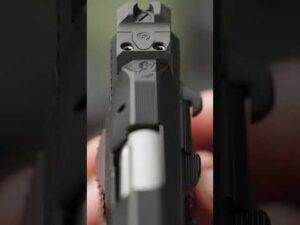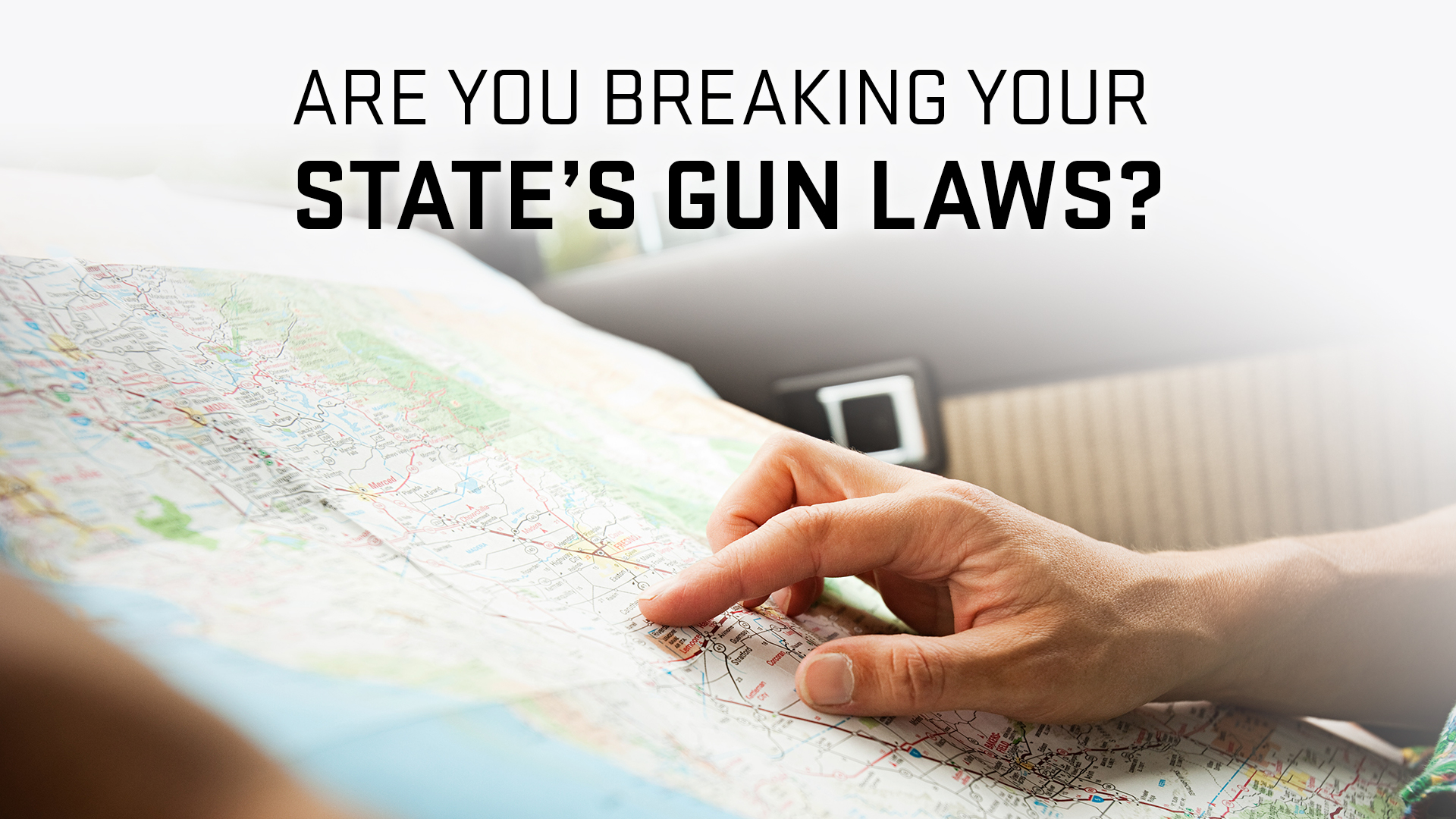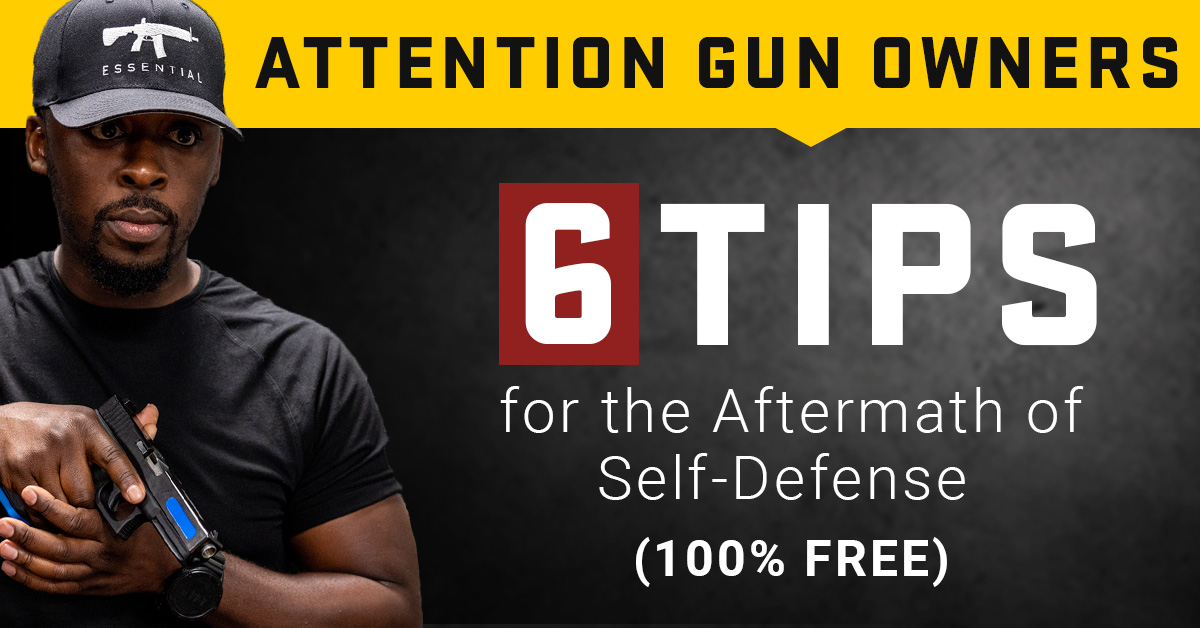December 16th 2022 – Gifting a gun? Before you buy, learn the laws
Image Courtesy NSSF. This story is based upon an NSSF Article. It’s the season for gift-giving (8 days until Christmas Day). You might be thinking of gifting a firearm to your grandson, or a gun to your spouse. There are important legal considerations to consider when gifting a gun to a friend or relative. The rules for firearm gift transfers differ from one state to the next. The bottom line is that you must know the law before you give a firearm to a close friend, family member, or relative. As you know, firearm ownership carries with it serious ethical and legal obligations that are not applicable to other consumer products. Let’s take a look at some questions that you might have about gifting a firearm as an item of value.
Image courtesy of NSSF. The first question you should ask is whether the intended recipient is allowed to legally own the firearm in the area where he or she resides. There are more than 20,000 gun laws in existence. This means that the types of firearms law-abiding citizens may own can vary from one place to the next. Juveniles (under 18) are generally prohibited from owning a firearm. For a complete list of local laws, visit the Bureau of Alcohol, Tobacco, Firearms and Explosives website. Also, remember that you cannot transfer a firearm to anyone you know or have reasonable cause for believing is legally prohibited from owning one. This is a federal offense, so be cautious. There is no federal law that prohibits you from donating a firearm to a friend or relative who lives in your state. Many states, including California, Colorado and Connecticut, New York, Oregon. Rhode Island, Washington State, Washington State, and the District of Columbia, require that you transfer a firearm through an FFL-holder. This will allow for an immediate background check to ensure that the recipient isn’t prohibited from owning the gun. Maryland and Pennsylvania require background checks for private handgun transfers. Yes, Oregon has new restrictions because of Ballot Measure 114. However, a State Judge has blocked some provisions BM 114. There are exceptions to the rule, so make sure you check your state’s laws or ask your local firearms retailer.
The ATF recommends that you purchase a gift certificate/card from your preferred gun retailer if you wish to give someone a new firearm. Give the gift card as a present. This allows the recipient to choose the gun that suits them best. There is no question about who “the actual buyer” of the firearm. This is something any purchaser must confirm on the Federal Form 4473 at purchase. Gift cards are a great way to avoid any “straw purchaser” issues. You can also earn a bonus for gifting a gift card. Brownells is running an offer. Brownells Gift cards are available for $100. You get a $25.00 gift certificate for yourself. This is basically a 25% bonus for your generosity. The Brownells Gift Card can be sent directly to the recipient. You can also have an electronic gift card sent by email if you are short on time. Click HERE to find out more.
What if you wish to gift “Old Betsy,” a favorite deer rifle, as a college graduation present to your son/daughter? Although there is no law in every state that prohibits it, many states require intra-family transfers to be done through licensed dealers. You cannot transfer a firearm to another person who is not a resident of the same state. You must transfer the firearm through a licensed dealer within the state where the recipient resides. A gift certificate from a firearms retailer close to the recipient’s home might be an option. You should always check with an FFL dealer in your state before giving firearms to friends or family members.
There are important rules regarding interstate shipping when you plan to transfer a firearm. You can only ship a handgun via common carrier (but U.S. Mail), and a long gun via U.S. Mail or common carrier, but not to an individual. FedEx and UPS may have new policies that require an FFL to initiate shipment to the FFL. Federal law requires that you declare that your package contains an unloaded firearm. Always check with your carrier before shipping firearms to ensure safety. Check your state laws regarding transfers. *Different rules might apply to shipping firearms to others in-state or to shipping firearms to you while you are temporarily taking care of someone else. You should always consult your state laws. Here are some FAQs taken directly from the ATF.GOV website. Q: Can a nonlicensed person ship a firearm through U.S. A nonlicensee cannot transfer a firearm to another state’s resident. A nonlicensee can mail a shotgun to a resident in his or her State or to a licensee from any State. The Postal Service recommends long guns be sent via registered mail. No marking should be placed on any firearms-containing parcel. Handguns cannot be sent by mail. Handguns cannot be shipped by common or contract carriers. [18 U.S.C. [18 U.S.C. To ship a handgun, a common or contract carrier must be used. Federal law also requires that the carrier is notified that the shipment contains firearms. Common or contract carriers are prohibited from requiring or causing labels to be placed on any package that indicates that it contains firearms. [18 U.S.C. 922 (a)(2)(A), 922-2(A), 922(3), 922(4), 922(5) and 922(8). Q: Can a non-licensed person ship firearms interstate to be used in hunting or any other lawful activity? A person can ship a firearm to themselves or to another person in the state where he or she plans to hunt or engage any other lawful activity. The owner should receive the package. The package should only be opened by the owner.
Similar Posts

















